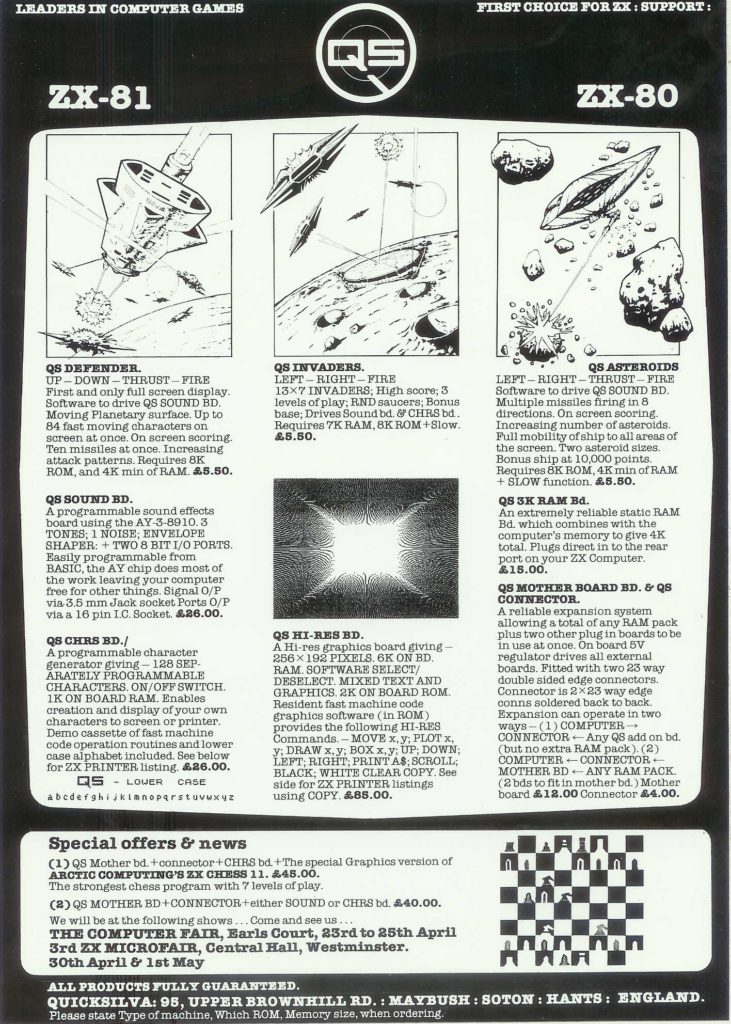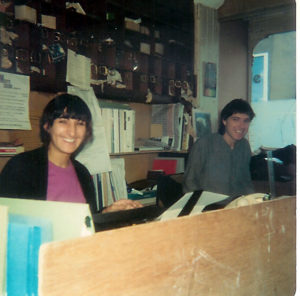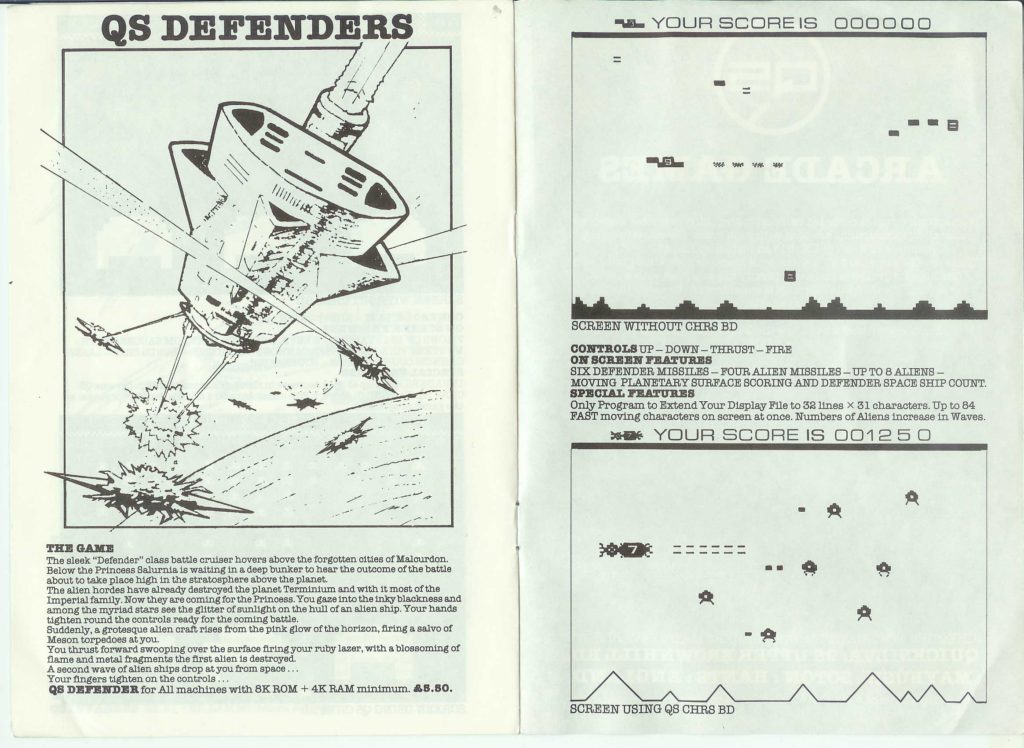On 1st December 2017 Caroline and Mark Eyles came to visit me at the UCL Knowledge Lab so I could interview them about their time working at Quicksilva. I had read Mark’s article about his time at Quicksilva that was published last year and Quicksilva were also mentioned by Jas Austin in my interview with him, as one of the company’s Jas had once submitted a game to for publication, but unfortunately they had turned the game down.
The interview touched on how Mark and Caroline (nee Hayon) joined Quicksilva early on in the company’s founding, with Mark starting by soldering some of the RAM boards the company originally made, and then as the business grew, Mark and Caroline both took on more responsibility for producing games, distributing them, running the Quicksilva offices and developing ideas that shaped the Quicksilva brand.
As this advert below shows, in the early days of Quicksilva, the company, founded by Nick Lambert, made RAM boards, sound boards, character generators, motherboards, and also games for the ZX80 and ZX81.

Quicksilva advert. Image courtesy of Mark Eyles.
Mark and Caroline talked about how the Southampton based company moved to offices after starting out in Nick’s back room. Both were aware of government initiatives around that time that were available to support businesses, such as people being able to sign on and still being able to do small amounts of work until they were at a stage of earning enough money to sign off again. Mark discussed how the company started making more games, and the influence of high street retailers, particularly WHSmith as they started to sell games in Britain. We also touched on their travel to the US and the differences in the US and UK markets, as well as their relationship with other publishers such as Virgin Interactive and Bug-Byte.
As with other interviews conducted so far, there was talk of how there was a feeling people should get ‘proper jobs’, and that working at Quicksilva was seen by them as playful even though it was really hard work with long hours. The fact that both Mark and Caroline got to work for a company that they loved, with people that they got on really well with meant that the long hours were worth it and both have very fond memories of that time.

Mark and Caroline at the Northam Road office in Southampton. Image courtesy of Mark Eyles.
As was also detailed in his paper on Quicksilva, Mark talked about the cover inserts he designed, where he wrote narratives to go with the games they were selling. This can be seen in the insert of games such as QS Defenders (shown below), and one of their tag-lines in magazine adverts for their games that stated “Free Universe with Every Tape.”

QS Defenders. Image courtesy of Mark Eyles.
It was these and the strong brand design of the QS logo and artwork that helped to set the company apart at the time. This led to various tie-ins with magazines, such as the Thomson Twins Adventure game released on the cover of CVG in October 1984 and the Strontium Dog titles from 2000AD, amongst others.
When Quicksilva was sold in 1984, Mark and Caroline parted ways with the company and continued with other careers, including a joint holography business, Holografix. Caroline then went into complementary healthcare and subsequent related research and Mark continued in the games industry, becoming a game designer (a role that emerged out of what he had been doing at Quicksilva), before finally becoming a university lecturer at the University of Portsmouth teaching game design, a role that he continues today.
A full transcript of the interview will be available next year.
